I have two sets of variables. The do make clear exactly where the string starts and ends but they are not part of the string themselves.

Stata Cheat Sheets Fundamental Analysis Data Science Cheat Sheets
In the Select Specific Cells dialog box select the Cell option in the Selection type section and in the Specific type section choose Begins with or Ends with from the drop-down list.

Stata if string starts with. RegEx for string starts with numbers and followed by letters. Understand that whenever Stata wants a varlist it can be a list of variables such as. The do make clear exactly where the string starts and ends but they are not part of the string.
Facility is a string variable and bir is one of the values facility takes. Each string either has an upper and lowercase portion or is all uppercase. Stata 10 was released in January 1985.
Drop depending of the first digits of a variable. -regexm- -strpos- or -strmatch- and I am searching for INC only Stata return all observation that contain INC like INCOME or something else but I need only observations with INC. The quotes here delimit the string.
Using regex to identify strings with capital letters I tried Nicks suggestion pasted below but inrange does not seem to distinguish between lower and upper case. Meaning all variables named rep followed by something or it can be a range of variables. The path on your file system to your Stata executable.
String values always go in quotes so if you wanted to store the letter x in a variable called x youd say gen x x. This cannot be changed while using set and must be edited in the configuration file before starting Jupyter. The other set has only numeric country suffixes such as export_1 export_2 export_3 which respectively represent export figures for US DE and UK.
Generate title regexs 0. I have a variable. A I would suggest using the substr function generate a new variable that contains the same string but without the first letter and so it only contains numbers then convert that string to numeric using destring and select observations using something like replace wanted 1 if inrangenewvar59101.
You seem to be reaching for. Without seeing your code we cant tell whether your code is incorrect your terminology is incorrect or both. When I use functions.
If inlist substr string id 1 2 45 74 63 Notes. How to check whether a string variable contains some characters. The next do file can then read that Stata data file and go to work.
Ask Question Asked 8 years 4 months ago. Ive tried the following. This will tell Stata that the first variable is a string nonnumeric group of a maximum of ten.
Originally variables could only be numeric although value labels were possible. If your research project starts with a big file in text format your first do file should probably just import the data drop any parts of it you wont actually use more on that in the next section and then save the result as a Stata data file. Stata would not find this confusing though you might because x in quotes x means the letter x and x without quotes means the variable x.
In this case 1 the stub should be inc which is the variable to be converted from wide to long 2 i is the id variable which is the unique identifier of observations in wide form and 3 j is the year variable that I am going to create it tells Stata that suffix of inc ie 80 81 82 should be put in the variable called year. But what if you did want to include one or more characters in a character string. In other words the statement below keeps all observations that begin with two letters whether capital or lower case.
If you type keep if facilitybir then Stata will look for a string variable named bir and will complain if it doesnt find it. In fact often are not necessary although I do recommend that you use them at least until you know when you can omit them without ensuing di culty. Active 8 years 4 months ago.
A string with the first characters of Unicode words titlecased and other characters lowercased ustrtosencmode converts the Unicode string s in UTF-8 encoding to a string in encoding enc ustrtohexsn escaped hex digit string of sup to 200 Unicode characters ustrtonamesp string stranslated into a Stata name. To do this we instruct Stata to find the day by looking at the beginning of the string ie. The name of the string is usually much shorter than the string to which it refers.
As a small matter of history Statas variable types were not all available from the beginning. See help on the functions -string - -substr - -inlist -. Omit them without ensuing difficulty.
These lines start with an underscore _ and the word column followed by the number of the column in which the data starts the type the name and the number of characters. If condition for restricting data starting with certain values like 45. Ive been trying to use regular expressions to extract only the uppercase portions of the string but havent had any luck.
I hope this helps. If all the strings begin with a single letter eg. String variables were introduced in Stata 20 in June 1988 and they could hold any even number of characters from 2 str2 type.
You should type keep if facilitybir That way Stata knows that bir is a string value. Replace STUFF1 if strpos stringvariable stuff. Mai 2010 2037 To.
Select the range you want to check cells begin or end with specific character and then click Kutools Select Select Specific Cells. Viewed 18k times 2 I want Regular expression for such inputs. Below are three types of examples.
The date for one or more values from 0-9. I am trying to program in Stata 142 so that if a cell string variable starts with a certain word or phrase it should be marked as 1. Making Dictionary Files for Stata.
The best Ive been able to do is identify when a string starts or ends with a certain number of uppercase characters. -if- used in this way is called a qualifier not a command. One set has numeric and string country suffixes such as.
We will examine this point later. In other words look for a number at the start of the line since we know the first series of numbers is the day Generate a new variable day and set it equal to that value. See -help ifcmd- and -help if-.
1 1a 1b 1c 1d 2 2a 2b 2c But if i write following inputs then it should not allow. Or it can be all variables starting with a certain prefix. There is an -if- command and an -if- qualifier.
Usually this can be found automatically during the install step but sometimes may need to be set manually. Is there a command in Stata which to search in string variable for a particular word and to return only this word.

One Way Anova In Stata Youtube

Changing String Variables To Numbers In Stata Youtube

Cheatsheets Introduction To Programming Cheat Sheets Data Analysis

Stata Quick Tip Date Function Youtube
The Stata Blog Stata 14 Announced Ships

Mengubah String Variable Menjadi Numerik Di Stata Youtube
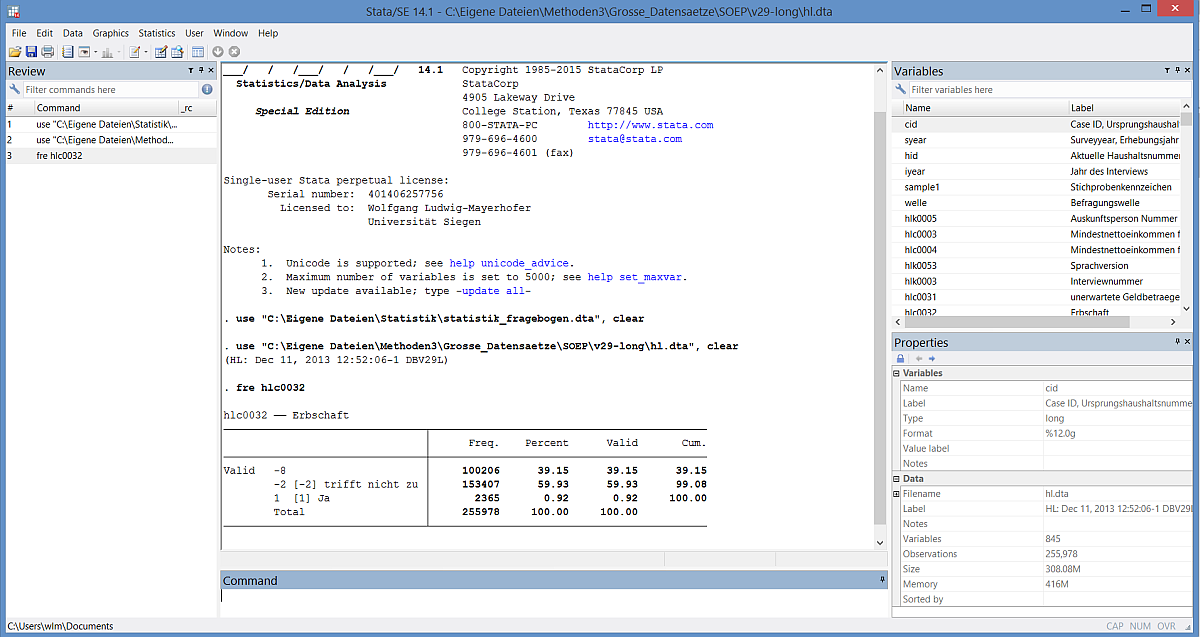
Stata Guide Working With Stata
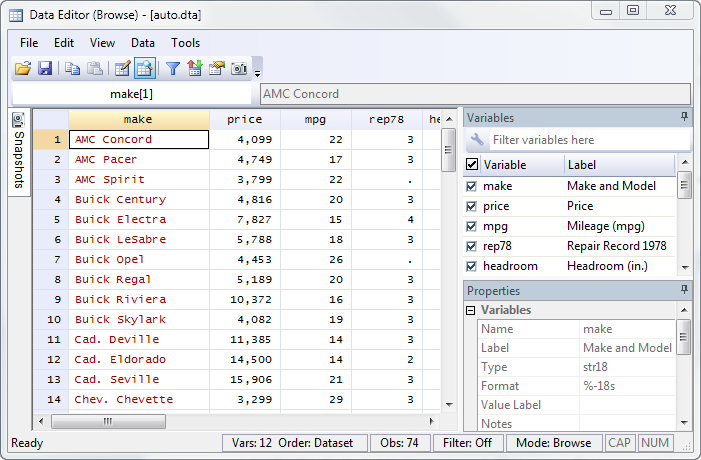
Stata For Students Using Stata

How To Create Dummy Variables In Stata Youtube

Stata For Students Using Stata

Simple Formatting Of Dates In Stata Youtube

Data Management How To Convert A String Variable To A Numeric Variable Youtube

Stata 39 Working With Dates And Creating A Dummy Variable Based On Dates Youtube

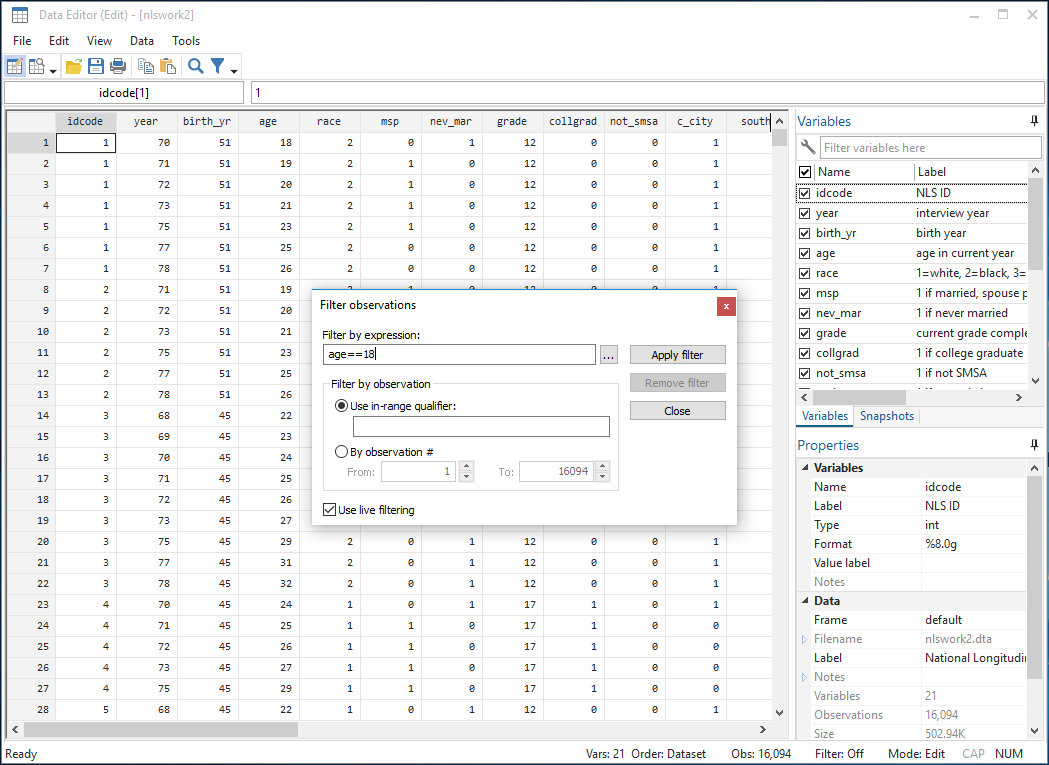
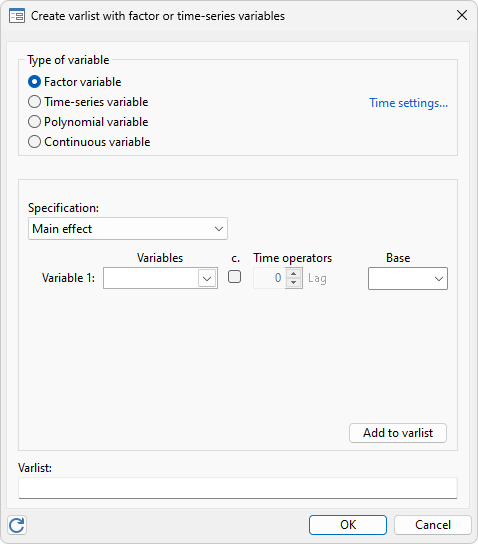

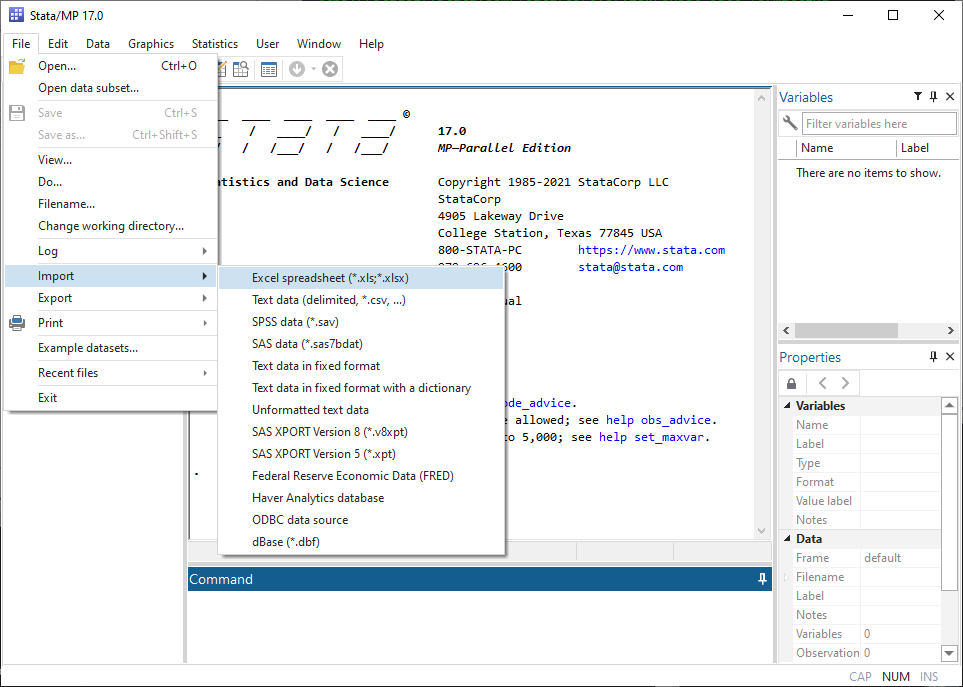
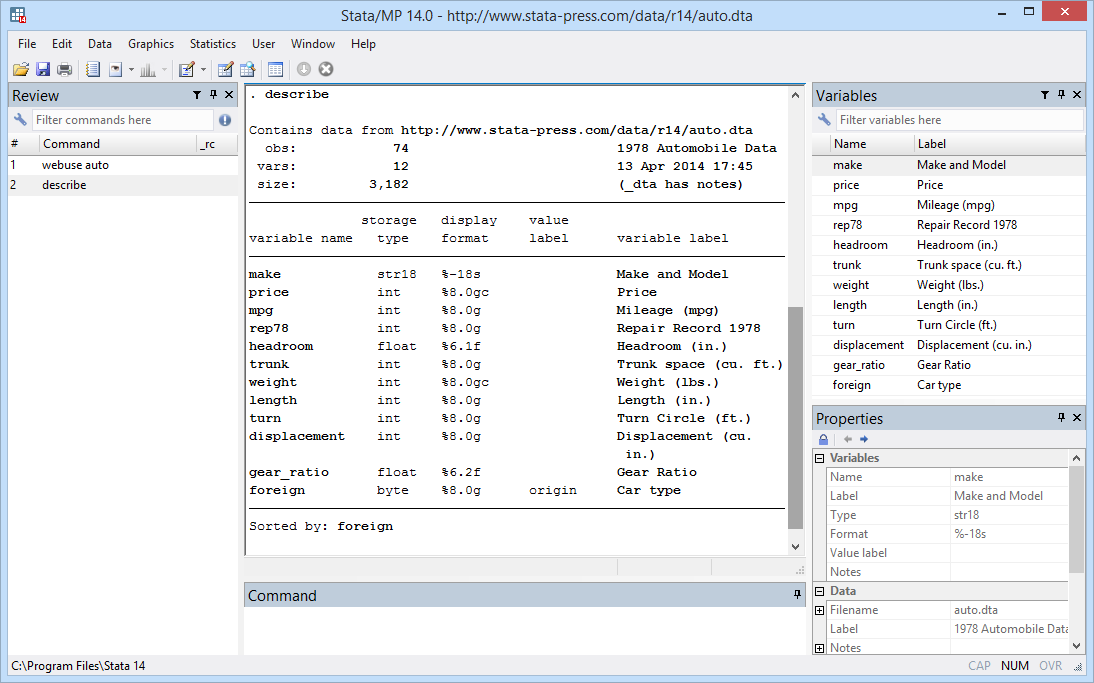
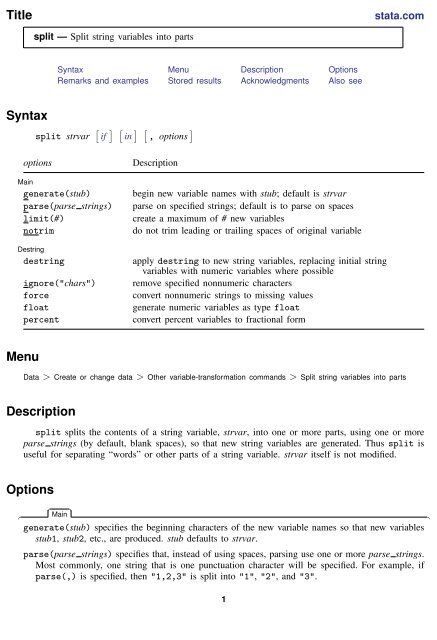
Post a Comment